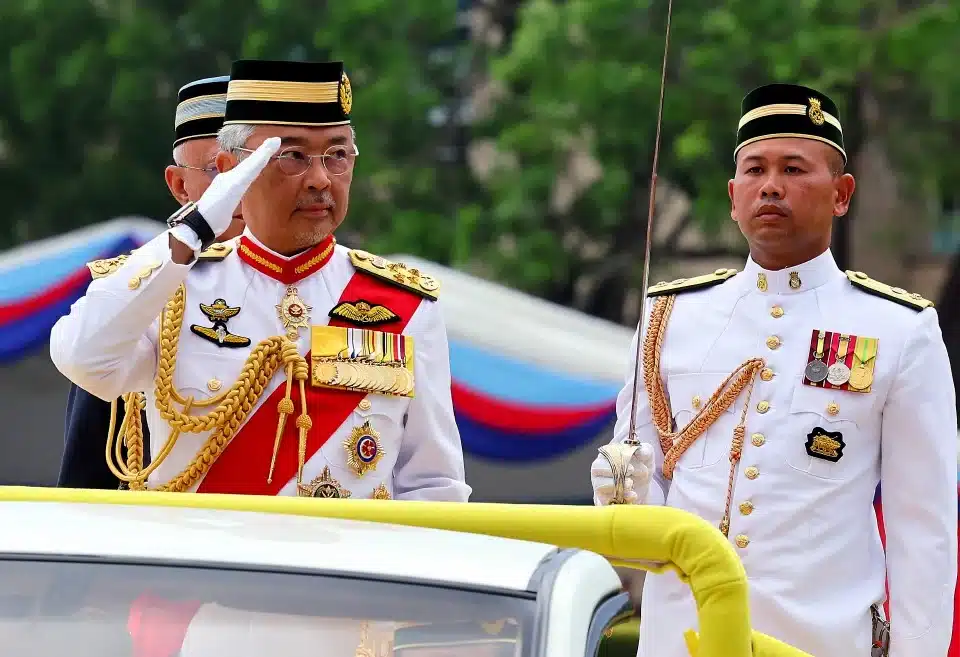KUALA LUMPUR, Jan 27 — The wisdom of Yang di-Pertuan Agong Al-Sultan Abdullah Ri’ayatuddin Al-Mustafa Billah Shah in addressing the political crisis following the 14th General Election (GE14) in 2018 stood as the most effective last line of defence that successfully prevented the country from plunging into an administrative crisis.
Looking back on the dark chapters in the nation’s history, Al-Sultan Abdullah, who ascended the federal throne on January 31, 2019, was tested with a significant challenge as he witnessed the change of government three times in less than five years after GE14.
Sharing his insights as one of the individuals closest to His Majesty at the time, former Comptroller of the Royal Household for Istana Negara Datuk Seri Ahmad Fadil Shamsuddin said he witnessed how composed Al-Sultan Abdullah was in handling the political turmoil that gripped the nation.
“His Majesty prioritised a diplomatic approach over confrontation and, in fact, opted for a consultative approach when it came to major decisions for the country, including holding discussions with the Malay Rulers.
“That is the true character of Al-Sultan Abdullah, who gained exposure to diplomatic courses during his studies at Sandhurst, United Kingdom, in addition to his role as a member of the Fifa Executive Committee and vice-president of the Asian Football Confederation (AFC),” he told Bernama.
Fadil — now serving as the Malaysian Ambassador to the United Arab Emirates — also described Al-Sultan Abdullah as a visionary leader, as every decision is based on the interest, safety and well-being of the people and nation.
He said even though directives in some issues may not be fully implemented at times, His Majesty remained open-minded without expressing anger towards the parties involved.
In addition to the four changes in the prime ministership involving Tun Dr Mahathir Mohamad, Tan Sri Muhyiddin Yassin, Datuk Seri Ismail Yaakob and Datuk Seri Anwar Ibrahim, GE15, which ended in a hung parliament, truly highlighted the credibility of His Majesty as the main pillar for the country’s security and unity.
According to constitutional expert Assoc Prof Datuk Shamrahayu Ab Aziz, Al-Sultan Abdullah has effectively utilised the powers of Yang di-Pertuan Agong as enshrined in the Federal Constitution to prevent the country from falling into administrative crises and prolonged political turmoil.
Citing Dr Mahathir’s resignation, Shamrahayu said His Majesty had demonstrated his wisdom by appointing Dr Mahathir as interim prime minister to ensure the country always has a leader and that administrative affairs can be carried out until his successor is finalised.
“The hung parliament, which occurred for the first time in the country’s history, once again proved the wisdom of the Yang di-Pertuan Agong when he proposed the establishment of a unity government to resolve the crisis,” said the law lecturer at International Islamic University Malaysia.
Meanwhile, political analyst Prof Dr Ahmad Martadha Mohamed described Al-Sultan Abdullah’s courage in making crucial decisions while also obtaining the views of the Malay Rulers as key to successfully managing all crises.
“At the time when politicians’ maturity is lost in power struggles and is no longer reliable to solve problems and safeguard the welfare of the people and nation, the credibility of Al-Sultan Abdullah and the constitutional monarchy becomes the last line of defence and the sole hope for the people to save the country.
“Without this, we might fall into prolonged conflicts, leading to an unstable country, and the people would have suffered due to the economic downturn. In fact, it is also possible to see foreign interference in the affairs and policies of the nation,” said the deputy vice-chancellor (student affairs and alumni) of Universiti Utara Malaysia.
Meanwhile, geostrategist and senior fellow at the Nusantara Academy of Strategic Research Prof Azmi Hassan said Al-Sultan Abdullah’s rule should serve as a profound lesson that a constitutional monarch and the royal institution are not merely symbols and status of national sovereignty.
“Some indeed underestimate the institution of Yang di-Pertuan Agong as merely a symbol of constitutional monarchy, but during the crisis, we have witnessed Al-Sultan Abdullah provide solutions to every deadlock, proving the institution’s crucial role.
“This serves as a valuable lesson; the wisdom and courage of His Majesty are highly essential. The king’s actions shed light on the significance of an institution that remains impartial in safeguarding the interests of the nation and its people, namely our constitutional monarchy guided by the constitution,” he said.
Al-Sultan Abdullah will complete his term as the 16th Yang di-Pertuan Agong on January 30, and the Sultan of Johor, Sultan Ibrahim Almarhum Sultan Iskandar, will begin his reign as the 17th ruler for a five-year term effective January 31.
— Bernama





